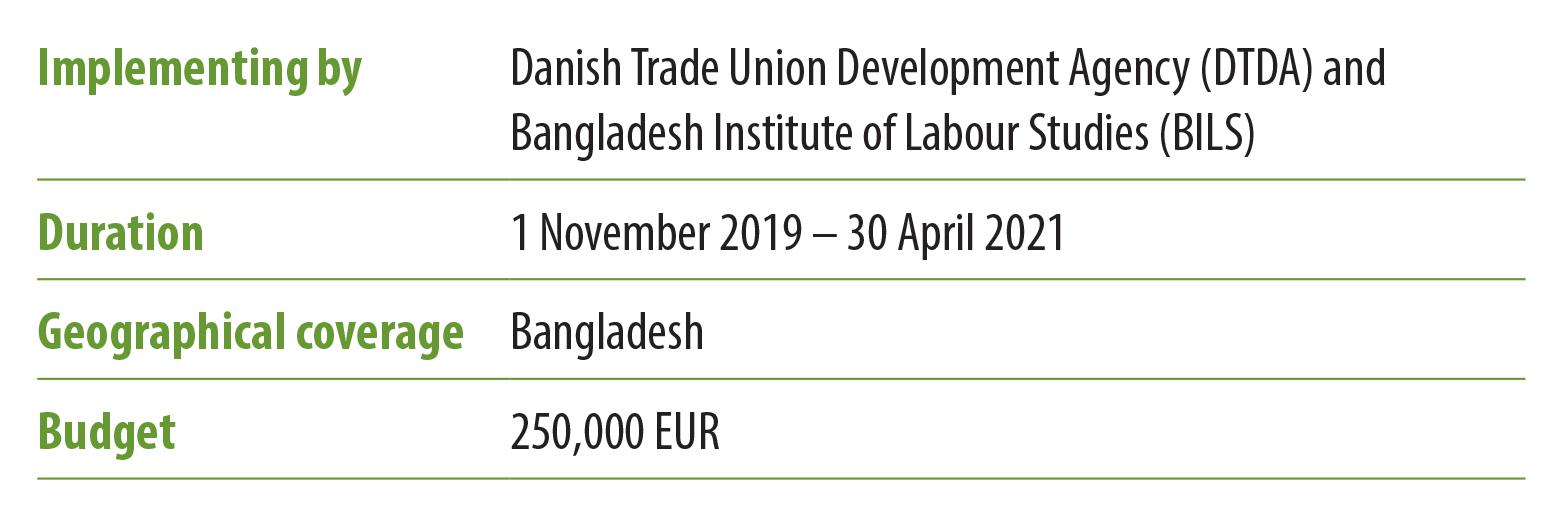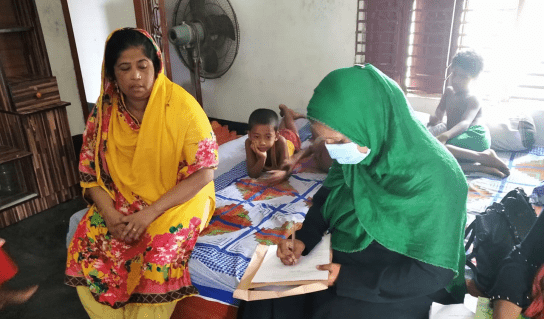Migration is a big phenomenon in Bangladesh and returning migrants are a potential big asset for the country. However, despite improvements in the current legislation of Bangladesh concerning migrant workers with the Overseas Employment and Migrant Workers Act 2013 and the establishment of a decentralized online worker registration system in 2013, gaps remain in the legislation and implementation of national policies.
A number of major acts and policies, including the Overseas Employment and Migrants Act 2013, Expatriates’ Welfare and Overseas Employment Policy 2016, the Wage Earners Welfare Fund Rules 2002 have all defined the need for addressing the concerns of returnee migrant workers, but they do not offer any detailed guidelines about a re-integration strategy nor the type of services needed. Moreover, there is a lack of considerations for female migrant workers and support for the National Women Development Policy (2011) in the Overseas Employment Policy.
At present time, the country does not have an institution assigned to deal with reintegration of returnee migrant workers. Furthermore, a rather large number of migrant workers, are not settling down in Bangladesh, but instead almost 40% are re-migrating, as they are disillusioned by the lack of available reintegration services in Bangladesh. It indicates a connection between the number of persons re-migrating and lack of employment with a wage to live from combined with scarce reintegration services and facilities.
While re-migration is a big phenomenon for a great number of returnee female migrant workers, there are already a number of initiatives addressing safe migration and re-migration. Thus, this intervention focuses on reintegration and ensures the best conditions for those female migrant workers, who want to settle down in Bangladesh. It has a specific focus on three pilot areas in Bangladesh: Faridpur, Jashore and Chattogram, and is implemented by the Danish Trade Union Development Agency (DTDA) and Bangladesh Institute of Labour Studies (BILS).
The project addresses the objective on both local and national levels. It seeks to address the lack of services for returnee female migrant workers, the lack of knowledge and information about financial management and investment possibilities, the lack of jobs and social stigma, which all hinder successful reintegration at local level. Moreover, the risk of social stigma and discrimination is addressed through alliance of social actors/stakeholders (trade unions and NGOs) which are advocating for the interests of returnee female migrant workers. At the national level there is a need for improved legal framework and policies to ensure better conditions for returnee female migrant workers. This is addressed through capacitating BILS and the trade unions to lobby and advocate for amendments on gender specific reintegration related issues.
About the implementing partner:
Danish Trade Union Development Agency (DTDA) has more than 30 years of experience with project management including managing programmes that address and improve migrant workers’ conditions and rights. Today, DTDA manages more than 30 programmes and projects worldwide in 17 countries in Asia, Africa, Latin America, and Middle East and North Africa.
Bangladesh Institute of Labour Studies (BILS) was established in 1995 by 13 national trade union centres, which organise the majority of the 2,9 million trade union members in Bangladesh, and is the leading labour market research institute in Bangladesh. BILS has played a vital role in formulating and reforming a number of labour and migration related policies and laws including Bangladesh Labour Act, Labour Rules, Overseas Employment and Migration Act & Rules and Occupational Health & Safety Policy.

